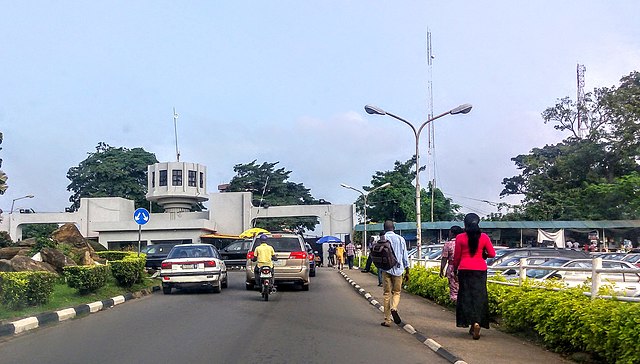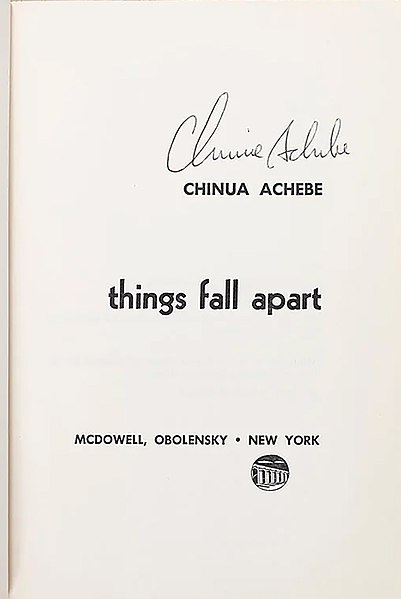Chinua Achebe was a Nigerian novelist, poet, and critic who is regarded as a central figure of modern African literature. His first novel and magnum opus, Things Fall Apart (1958), occupies a pivotal place in African literature and remains the most widely studied, translated, and read African novel. Along with Things Fall Apart, his No Longer at Ease (1960) and Arrow of God (1964) complete the "African Trilogy". Later novels include A Man of the People (1966) and Anthills of the Savannah (1987). In the West, Achebe is often referred to as the "father of African literature", although he vigorously rejected the characterization.
Achebe in Lagos, 1966
The Gate of the University of Ibadan, 2016
A spiral stack of the 1994 Anchor Books edition of Things Fall Apart
Achebe selected the novel Weep Not, Child by Ngũgĩ wa Thiong'o (pictured) as one of the first titles of Heinemann's African Writers Series.
A masterpiece, magnum opus, or chef-d'œuvre in modern use is a creation that has been given much critical praise, especially one that is considered the greatest work of a person's career or a work of outstanding creativity, skill, profundity, or workmanship.
Michelangelo's The Creation of Adam (c. 1512), part of the Sistine Chapel ceiling, is considered an archetypal masterpiece of painting.
In painting, Leonardo da Vinci's Mona Lisa (c. 1503–06) is considered an archetypal masterpiece, although it was not produced for admission to a guild or academy.
Things Fall Apart by Igbo author Chinua Achebe is often considered a literary masterpiece, and one of the greatest works of Nigerian literature.
Federico Zuccari, Two Painter's Apprentices, 1609. They would have to produce a masterpiece to become masters at the end of their apprenticeships.








